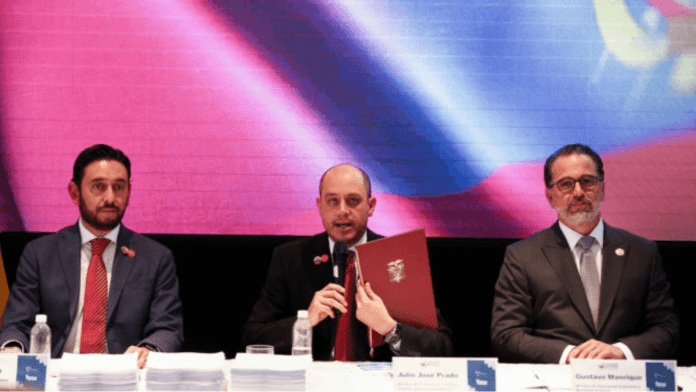News in Brief:
– The Ecuador-China free trade agreement promises significant economic growth through increased exports and job opportunities.
– While heralded for its potential benefits, concerns linger over its environmental impact and the preservation of local industries and livelihoods.
Ecuador and China are poised to embark on a new chapter in their economic relationship as the Free Trade Agreement (FTA) between the two nations kicks off. With promises of job creation and a significant boost in non-oil exports, the agreement has sparked both hope and apprehension within Ecuadorian communities.
The South Amrican nation’s Ministry of Production, Foreign Trade, Investment, and Fisheries projects a substantial increase of $3 billion to $4 billion in Ecuadorian exports to China in the coming years. This growth is expected to create numerous employment opportunities, particularly benefiting local farmers and artisans.
The FTA promises preferential access to China’s vast consumer market of 1.4 billion people, offering Ecuadorian exporters a competitive edge. Also, 99.6% of Ecuadorian exports are set to be tariff-free within a decade including products like dragon fruit, cocoa powder, and toquilla straw hats.
The agreement’s implementation holds significant implications for local communities, particularly those reliant on agriculture and artisanal crafts. For example, the export of pitahaya involves the livelihoods of approximately 15,000 families, while the tariff reduction on toquilla straw hats will support 2,500 artisans across several provinces.
Environmental and social concerns
Despite the economic opportunities presented by the deal, concerns have been raised regarding its potential environmental and social impact. Critics fear that increased trade with China may lead to the exploitation of Ecuador’s natural resources and the influx of harmful practices, such as the disposal of toxic waste and overfishing by Chinese fleets in Ecuadorian waters.
As Ecuador becomes the fourth Latin American country to enter into a free trade agreement with China, the government faces the challenge of balancing economic growth with environmental and social sustainability. The inclusion of an electronic commerce chapter underscores the importance of leveraging technological advancements while maintaining a robust regulatory framework.



